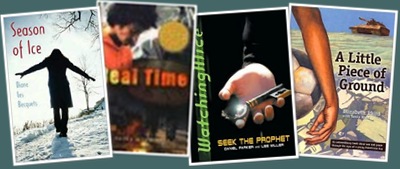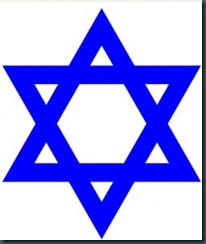Books about Missing Persons
Missing by Catherine MacPhail
Shortly after her runaway brother is declared dead, thirteen-year-old Maxine begins receiving phone calls from someone claiming to be her brother
Missing Abby by Lee Weatherly
As the last one to see thirteen-year-old Abby, Emma is determined to discover the truth about her mysterious disappearance, spurred in part by her feelings of guilt over ending their friendship in order to ensure popularity at her new school
Season of Ice by Diane Les Becquets
When seventeen-year-old Genesis Sommer's father disappears on Moosehead Lake near their small-town Maine home in mid-November, she must cope with the pressure of keeping her family together, even while rumors about the event plague her.
Seek the Prophet by Daniel Parker and Lee Miller
In desperation, high school senior Tom Sinclair publishes his missing and possibly kidnapped girlfriend’s diary online, as he looks for help in locating her.
Books about the Arab-Israeli Conflict
Light Years: A Novel by Tammar Stein
Maya Laor leaves her home in Israel to study astronomy at the University of Virginia after the tragic death of her boyfriend in a suicide bombing.
A Little Piece of Ground by Elizabeth Laird with Sonia Nimr; illustrations by Bill Neal
During the Israeli occupation of Ramallah in the West Bank of Palestine, twelve-year-old Karim and his friends create a secret place for themselves where they can momentarily forget the horrors of war
Real Time by Pnina Kass
Sixteen-year-old Tomas Wanninger persuades his mother to let him leave Germany to volunteer at a kibbutz in Israel, where he experiences a violent political attack and finds answers about his own past



